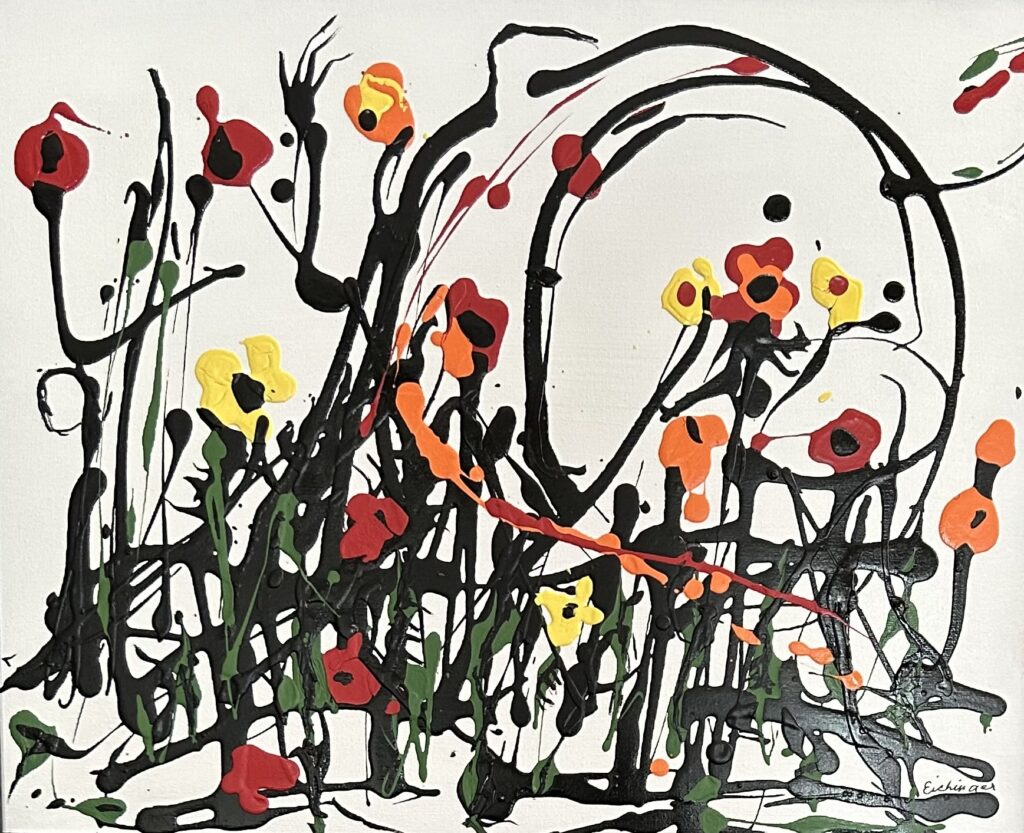
LIFE IN MOTION
Sanity in An Era of Upheaval
Racial slurs were thrown at my grandchild while she was at summer camp last week. I was horrified knowing that the young bully had been taught to disparage people of color. You don’t grow up saying such things on your own. Foul, hateful language has no place in a peaceful society. I hope the scars from the experience won’t stay with her for the rest of her life. This child is not the only one in my family to have been victimized. Several years ago, an older granddaughter was caught in the crossfire at a Las Vegas concert. The shooter was a mentally disturbed individual who shouldn’t have had access to guns. Then, there was a son who had his car stolen from the parking space outside his business. Months later, he chased away people trying to break into the facility while he was there. He no longer feels safe there. I could share other incidents, but the point is that we are one family trying to survive in a nation with a stressed, economically fragile, mentally unstable population that is growing.
Climate change, water scarcity, COVID-19, online bullying, international wars, drugs, and drama around the election wreak havoc on Americans. Thirty-eight percent more people are in mental health care than before the pandemic, a reflection of those who can afford treatment rather than all who need it. s. Overall, approximately 20% of inmates in jails and 15% of inmates in state prisons are now estimated to have a severe mental illness. Communities across the nation face crisis after crisis, with inadequate providers to meet demand.
The U.N. says the problem is acute worldwide. Can you imagine what it’s like to live through twenty years of warfare in Sudan or nine months in Gaza? And what of our warming planet? Water, at the center of the climate crisis, affects two billion people worldwide for at least a part of the year. Rising sea levels and saltwater have flooded some areas, making freshwater brackish. Others flee arid lands that can no longer be farmed. Villages are empty of residents with no choice but to migrate. Yet these desperate families are turned away at borders throughout Europe and the Americas. Their traumatized children are left with lifetime scars. If I were them, would I become angry and thrash out or sink into clinical depression and anxiety? Unease is in the air and it is felt everywhere.
Thankfully, there are people concerned with the mental health crisis. Insurance companies were compelled to add mental health services, and Obama Care expanded it to millions more people. Some cities send social workers or psychologists rather than the police to deal with homeless populations. Professional treatment through Internet connections increased by 6,500 percent between 2020 and 2021.
One of the most significant barriers to treatment is overcoming the stigma attached to mental illness. This attitude goes back as far as the Greek and Roman days. The Greek philosopher Socrates is credited with saying, “The unexamined life is not worth living.” Though a religious man, he continued to seek the truth, believing the love of wisdom was the most important pursuit. It is necessary to look inward to understand the impediments to looking outward.
The challenge is to destigmatize mental illness and provide access to appropriate care. If we don’t, we will continue to be subject to gun violence and drug abuse by people who bury their pain in antisocial ways. You and I can help by lowering the temperature of disparaging language. The media could help to reduce shame, ostracism, discrimination, and marginalization when covering mental illness.
Institutions like museums, schools, and libraries could foster relationships with community resources and mental health agencies. Many libraries already employ social workers who direct people to appropriate services. Museums are being asked to train staff and volunteers so they can not only deal with disruptive problems but also introduce sensitive topics and trigger issues in exhibitions around mental disorders. The Americans Alliance of Museums suggests designing safe space displays for the public to explore “challenging and potentially uncomfortable or disturbing subject matter.” These suggestions may help, but it will take a wave of understanding and compassion to turn things around. Anatole France said, “Even a little dog is the center of his own universe.” We must be sensitive to those whose vision differs from ours. By broadening our perspectives, we benefit from having our lives enriched.
I look forward to your comments. Please respond below.
Art is always for sale. ART IN MOTION is a 16” x 20” acrylic painting on framed canvas. It is available for $250, including shipping in the continental U.S. Contact me at marilynne@eichingerfineart.com
According to the UN, water is at the center of the climate crisis.

THE WATER FACTOR, A RIGHTFULLY MINE NOVEL, lets you peer into the near future to a time of water scarcity controls by corporate criminals. The story is a gripping tale of water scarcity and corporate wrongdoing. The Water Factor is a Firebird International Award winner for best dystopian novel and a Literary Titan recipient for best thriller. It is available in ebook, paperback, and audio formats. It can be purchased on AMAZON, Barnes and Noble, and as an audiobook on Amazon, Audible, and iTunes. Ask your bookstore to order a copy from Ingram. Please leave a review.
